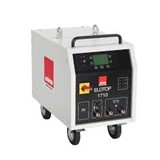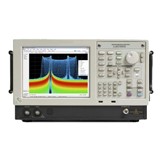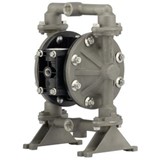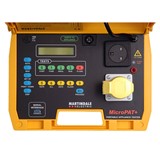Keynote speakers for the events will be Austrade’s Tokyo-based Senior Trade Commissioner Elizabeth Masamune and Japan market research specialist Debbie Howard, President of the Japan Market Resource Network, and former President and Chairman of the American Chamber of Commerce in Japan.
Masamune said Australian exporters could benefit from learning how a history of close commercial ties, a decade of reform, and greatly improved exchange rate conditions meant Japan offered a range of new international business opportunities.
“As the world’s second biggest economy sitting on significant wealth, Japan has a discrete value proposition to offer any serious Asian business strategy,” Masamune said.
Austrade’s Chief Economist Tim Harcourt said that despite setbacks from the global financial crisis, Japan was well placed to deliver opportunities for Australian business.
“Japan still remains Australia’s top export destination, purchasing over $34 billion of Australian commodities, products and services annually. In many sectors Australia’s main competitors are from the US, which means Australian goods and services are now 20-30% more competitive as a result of the lower Australian dollar,” he said.
“Of course, Japan has also learnt the hard lessons of slow growth, deflation and its own home-grown financial crisis during the ‘lost decade’ of the ‘90s. Japan undertook significant reform in its financial sector, and as a result, many banks are now faring better than their counterparts in Europe and the USA.
“There are still difficulties in relation to the financial crisis, but Japan is a wealthy society and an important source of investment and innovation driving intra-Asian trade,” Harcourt said.
Masamune said that the past decade’s reform had seen increasing diversification across the Japanese economy, which meant opportunities for exporters were being created in new sectors.
“For example, Japan has reduced its reliance on manufacturing, with the fast-growing services sector expanding to reach 70% of GDP and worth more than US$3 trillion every year,” Masamune said.
“In financial services, Japan is a particularly important market of opportunity. The pension fund market created by Japan’s retiring baby boomers – or ‘Dankai’ generation – will remain a prime target for Australian funds managers. Of Japan’s $US14 trillion household assets, an amount equal to the entire household savings of all of Asia combined, only 3% are in mutual funds, compared with 20% in the US.
“Many Japanese companies are cashed up and ready to make acquisitions, not just in strategic assets but in skills, creativity, and intellectual property. Japanese companies have always been innovators and are acutely aware of the need to develop, acquire or buy IP.
“The financial crisis has provided the impetus for those companies to pursue opportunities globally. Australian companies with a comprehensive Asian business focus would be well placed to consider leveraging partnerships with Japanese firms right across the region.”
“The current exchange rate has further triggered heightened interest in new and innovative Australian service models, and in areas such as food products, were Japanese buyers are now more interested in sourcing quality Australian food, particularly in response to Japan's increasing sensitivity to both food security and food safety issues.
“Gaps left in the workforce by high numbers of ‘Dankai’ retirees have resulted in more Japanese mothers entering paid employment, creating opportunities for Australian companies in childcare and early education. With the government also now requiring English language education at a primary school level, Australian providers of pre-school English learning programs are well placed to win business.
In 2007-08, Austrade assisted 628 Australian businesses achieve deals in Japan worth A$1.15 billion, with 187 of these new or irregular exporters. Australia and Japan are in the midst of negotiating a bilateral FTA Agreement which stands to deliver significant future benefits from an already strong platform of engagement.
Australian businesses are invited to attend ‘An Insider’s View of Japan’s Economy’ in Melbourne (18 November) and Sydney (20 November).
- Suppliers
- New to IndustrySearch? Book a Demo
- Advertise with us
- Login
- Email Marketing
- Buyers
- Get Quotes
- Articles & Ideas
- Login
- Subscribe to newsletter
- My Details
- Get Quotes
- Automation & Control
- Automotive Workshop Equipment
- Commercial Cleaning Equipment & Supplies
- Construction Equipment & Heavy Machinery
- Conveyor Systems & Components
- Electrical & Power Generation Equipment
- Electronic Components
- Farming & Agriculture
- Food & Beverage Processing
- Forklifts & Forklift Attachments
- Hydraulic & Pneumatic Equipment
- Industrial Materials, Tools & Components
- Industrial Pumps
- IT Hardware & Industrial Computing
- IT Software & Applications
- Laboratory Equipment & Instruments
- Manufacturing & Industrial Equipment
- Material Handling & Lifting Equipment
- Metalworking & Machining
- Mining Equipment & Machinery
- Packaging & Labelling Machinery
- Pallet Handling Equipment
- Personal Protective Equipment
- Security & Surveillance
- Test & Measurement
- Transport & Logistic Equipment
- Warehouse Storage, Shelving & Racking
- Waste Treatment & Environmental Management
- Welding Machines & Accessories
- Woodworking & Joinery Machines
- Workplace Equipment
- Workplace Safety Equipment
- Get Quotes
- Automation & Control
- Automotive Workshop Equipment
- Commercial Cleaning Equipment & Supplies
- Construction Equipment & Heavy Machinery
- Conveyor Systems & Components
- Electrical & Power Generation Equipment
- Electronic Components
- Farming & Agriculture
- Food & Beverage Processing
- Forklifts & Forklift Attachments
- Hydraulic & Pneumatic Equipment
- Industrial Materials, Tools & Components
- Industrial Pumps
- IT Hardware & Industrial Computing
- IT Software & Applications
- Laboratory Equipment & Instruments
- Manufacturing & Industrial Equipment
- Material Handling & Lifting Equipment
- Metalworking & Machining
- Mining Equipment & Machinery
- Packaging & Labelling Machinery
- Pallet Handling Equipment
- Personal Protective Equipment
- Security & Surveillance
- Test & Measurement
- Transport & Logistic Equipment
- Warehouse Storage, Shelving & Racking
- Waste Treatment & Environmental Management
- Welding Machines & Accessories
- Woodworking & Joinery Machines
- Workplace Equipment
- Workplace Safety Equipment
Trusted by 1,000,000+ Australian industrial buyers
Buyers
- Discover products & solutions
- Login
- Subscribe To Newsletter
- Browse All Products
- Read Articles
Suppliers
Advertise
- Promote your products & solutions
- New to IndustrySearch? Book a Demo
- Login / Forgot Password
- Advertise Your Products
- Success Stories
- Email Marketing
- Suppliers
- Advertise with us
- Login
- Email Marketing
- Buyers
- Get Quotes
- Articles & Ideas
- Login
- Subscribe to newsletter
- My Details
Get Quotes
- Automation & Control
- Automotive Workshop Equipment
- Commercial Cleaning Equipment & Supplies
- Construction Equipment & Heavy Machinery
- Conveyor Systems & Components
- Electrical & Power Generation Equipment
- Electronic Components
- Farming & Agriculture
- Food & Beverage Processing
- Forklifts & Forklift Attachments
- Hydraulic & Pneumatic Equipment
- Industrial Materials, Tools & Components
- Industrial Pumps
- IT Hardware & Industrial Computing
- IT Software & Applications
- Laboratory Equipment & Instruments
- Manufacturing & Industrial Equipment
- Material Handling & Lifting Equipment
- Metalworking & Machining
- Mining Equipment & Machinery
- Packaging & Labelling Machinery
- Pallet Handling Equipment
- Personal Protective Equipment
- Security & Surveillance
- Test & Measurement
- Transport & Logistic Equipment
- Warehouse Storage, Shelving & Racking
- Waste Treatment & Environmental Management
- Welding Machines & Accessories
- Woodworking & Joinery Machines
- Workplace Equipment
- Workplace Safety Equipment
Get Quotes
- Automation & Control
- Automotive Workshop Equipment
- Commercial Cleaning Equipment & Supplies
- Construction Equipment & Heavy Machinery
- Conveyor Systems & Components
- Electrical & Power Generation Equipment
- Electronic Components
- Farming & Agriculture
- Food & Beverage Processing
- Forklifts & Forklift Attachments
- Hydraulic & Pneumatic Equipment
- Industrial Materials, Tools & Components
- Industrial Pumps
- IT Hardware & Industrial Computing
- IT Software & Applications
- Laboratory Equipment & Instruments
- Manufacturing & Industrial Equipment
- Material Handling & Lifting Equipment
- Metalworking & Machining
- Mining Equipment & Machinery
- Packaging & Labelling Machinery
- Pallet Handling Equipment
- Personal Protective Equipment
- Security & Surveillance
- Test & Measurement
- Transport & Logistic Equipment
- Warehouse Storage, Shelving & Racking
- Waste Treatment & Environmental Management
- Welding Machines & Accessories
- Woodworking & Joinery Machines
- Workplace Equipment
- Workplace Safety Equipment
Trusted by 1,000,000+ Australian industrial buyers















